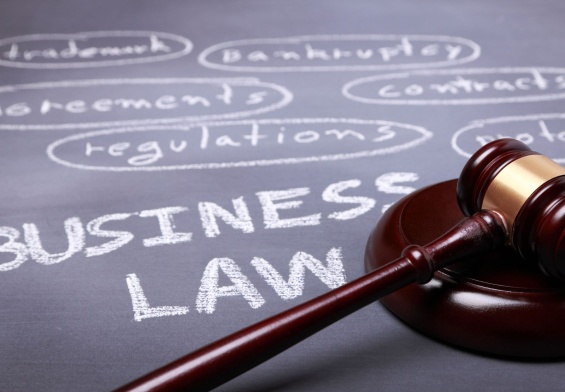In 2023, there were 81,055 employment law violations reported to the Equal Employment Opportunity Commission (EEOC) in the United States, demonstrating the need for such a body and just how rampant employment law violations are in the country. Of course, being on the receiving side of misconduct like this can be quite stressful, but there are ways for you to seek justice. Whether it’s discrimination, harassment, wage theft, or any other violation, you need to understand how to report an employment law violation to the EEOC to keep your rights protected. This guide will take you through the essential steps to report an employment law violation, so your concerns can be heard and addressed appropriately.
Recognize the Violation
The first step in reporting an employment law violation is recognizing when one has occurred. Employment laws are designed to protect workers from various forms of misconduct, such as:
- Discrimination: Being treated unfairly based on race, gender, age, religion, disability, or other protected characteristics.
- Harassment: Unwelcome behavior, including sexual harassment, that creates a hostile work environment.
- Wage Theft: Not being paid for all hours worked, being denied overtime pay, or other illegal deductions from your wages.
- Retaliation: Adverse actions taken against you for reporting misconduct or participating in an investigation.
Understanding the criteria for these violations is the first step in taking action. It’s important to be aware of your rights and understand that certain behaviors are more than just unfair—they’re illegal.
Internal Reporting
It’s typically a good idea to try and address the issue internally before taking steps to file a workplace discrimination complaint to an outside agency like the EEOC. Most companies have procedures in place to handle complaints, which may involve notifying your supervisor or the human resources (HR) department.
Notify Your Employer
Submit a formal report of the incident/issue to your employer. Procedures for this may be outlined in your employee handbook or company policies. Typically, this involves sending a detailed report to your supervisor or HR, detailing the nature of the violation.
When reporting, the need to be clear and factual cannot be overstated. Don’t let emotions drive your communication; focus on the specific incidents and how they violate your rights under employment law instead. Doing things this way can sometimes fix the issue outright, since your employer might not know about the misconduct or be willing to address it promptly.
Documenting the Issue
You need to support your claim with proper documentation. Gather as much evidence as possible, which could include:
- Emails and Text Messages: Any written communication that demonstrates the violation.
- Witness Statements: If colleagues witnessed the misconduct, their statements could be valuable.
- Logs of Incidents: Keep a detailed record of when and how the violations occurred, including dates, times, and any relevant details.
If the issue escalates to a legal case or an investigation by an external agency, knowing how to document workplace harassment will be invaluable.
Filing a Complaint with State or Federal Agencies
If the issue isn’t resolved by internal reporting, or if the violation is too severe, you may need to file a complaint with a state or federal agency. There’s a legal process for reporting employer misconduct, and the nature of the violation determines the agency you should be notifying.
Determine the Appropriate Agency
- Equal Employment Opportunity Commission (EEOC): Handles cases related to discrimination and harassment based on protected characteristics.
- Department of Labor (DOL): Oversees wage and hour violations, including wage theft and overtime pay issues.
Each agency has its own unique process and deadlines for filing a complaint, so it’s essential to act promptly. For instance, discrimination complaints with the EEOC generally need to be filed within 180 days of the incident.
Filing the Complaint
With most agencies, you can file a complaint online, by mail, or in person. You’ll need to provide detailed information about the violation, including your evidence. After filing, the agency may investigate the claim, which may involve interviewing you, your employer, and any witnesses.
In some cases, state agencies may also be involved, especially if they have workshare agreements with federal agencies like the EEOC. This means your complaint could be shared with both state and federal bodies, leading to a more thorough investigation.
Seek Legal Counsel
If you’re not sure about how to proceed or if the situation is too complex, speaking with an attorney specializing in employment law NJ can help a ton. An attorney can help you understand whether you have a valid case, assist with gathering and organizing evidence, and represent you in court negotiations if it comes to that.
When to Consult an Attorney
It’s certainly possible to get through the complaint process by yourself, but an attorney’s help can be invaluable, especially if the case is complicated. For example, if you’re facing retaliation after reporting misconduct or if the violation involves nuanced legal issues, recruiting a lawyer to your side can ensure your rights are fully protected.
What to Expect After Filing a Complaint
Once your complaint is filed, the agency or your employer (if reported internally) will likely initiate an investigation. This process can vary in length, depending on how complex the case is and how much other work the agency has on its plate.
The Investigation Process
These investigations typically involve reviewing documents, interviewing involved parties, and assessing the credibility of witnesses. The goal is to gather enough information to determine whether the law was violated and what corrective actions, if any, should be taken.
Possible Outcomes:
- Settlement: The employer may agree to settle the case to avoid further legal action.
- Corrective Action: If the investigation finds that a violation occurred, the employer may be required to take corrective actions, such as reinstating a wrongfully terminated employee or paying back wages.
- Litigation: In some cases, the issue may proceed to court if a resolution isn’t reached through the agency’s investigation.
Protecting Your Workplace Rights
Reporting an employment law violation is a serious step, but it’s an essential one for protecting your workplace rights and making sure you’re treated fairly at work. When you recognize the violation, follow internal reporting procedures, document the issue, and file a complaint with the appropriate agency, you can take action against unlawful employer behavior. Remember, you don’t have to navigate this process alone—legal counsel can provide valuable support and guidance throughout the process.
Taking these steps addresses your situation and makes the workplace safer and fairer for everyone. If you believe you’ve been treated unlawfully, don’t hesitate to take action and protect your rights under the law.




